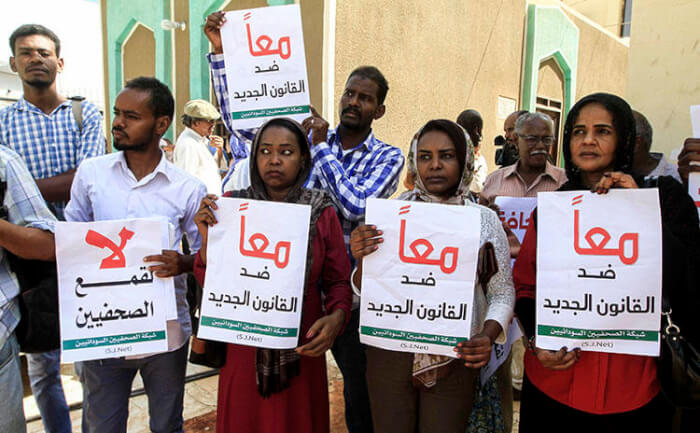The Unbearable Burden: Sudan’s Crippling Economic Crisis and the absence of Plan B
By Magdi A. Mofadal
It is known that the Transitional Government of Sudan inherited a lot of challenges from the deposed regime; chief among them is the crippling economic crisis. This crisis was the driving force behind the popular protests that culminated in the collapse of the previous regime in April 2019.It is the biggest challenge not only for the Transitional Government but for the future of the country itself.
The symptoms of this crisis range from a two-digit inflation rate to a steep depreciation of the Sudanese Pound to high budget and Balance of Payments deficits. The banking system is crimpling. With only 6% of GDP, Sudan has one of the lowest tax collection rates in the World. The country also suffers from an unsustainable external debt which is more than $50 billion.
This dire economic situation was a direct result of many factors; some of them even predate the deposed regime that came to power in 1989. A major factor that contributed substantially to this crisis is the internal conflicts that Sudan has been suffering from since 1955. These conflicts not only led to draining the country’s meager resources but to tarnishing its image and led to high levels of human suffering and displacement that impacted millions of citizens throughout the conflicts lifecycle.

Conflicts, among other factors, also led to poisoning of Sudan’s relations with the international community and to imposing different types of sanctions on the country. This, in turn, deprived the country from official development aid (ODA), from benefiting from international debt-relief initiatives, and from receiving substantial foreign investments.
Military and security expenditures ballooned as a result of conflicts and have been taking the lion’s share of the budget. This has been taking place at the expense of spending on social services, economic development and infrastructure.
Coupled with conflicts, there were other factors that contributed to the economic crisis such as mismanagement of the resources, corruption, lack of sound economic policies, weak accountability for economic crises, and the failure to harness the oil boom in the period 2000-2010 to support the productive sectors and infrastructure
Faced with this crisis, the Transitional Government adopted a two-pronged economic reform policy. This policy aims at satisfying the urgent needs of the population on one hand, and preparing for robust economic reforms on the other hand. Taking into account the magnitude of the crisis, it is increasingly becoming evident that there is no way to rescue the Sudanese economy without substantial support from the international community.
There is a real possibility that the country can collapse if the international community does not support it. There is no plan “B” for supporting Sudan at this very historical juncture. Sudan has to succeed or to succeed. Sudan is on the verge to become the next successful story in Africa. But all that is achieved thus far will be endangered if the economic crisis is not immediately addressed.
To avoid this bleak scenario not only for Sudan, but for the region and the international community, a concerted and robust support for Sudan is badly needed. It is hoped that the April 2020 donor’s conference will be the right answer. The United States has to expedite the process of delisting Sudan from the States Sponsor of Terrorism (SST) list. Sudan cannot move a step forward without this delisting.
Every effort must be exerted to achieve peace in Sudan as soon as possible. An all-inclusive and comprehensive national healing, reconciliation and justice process has to be launched immediately. The need for foresightedness, proper prioritization and statesmanship cannot be overemphasized.
On the other hand, there is an urgent need for prudent economic policy, strict financial discipline, transparency, and accountability. Tough economic decisions have to be taken in order to put the economy on the right track.
One can confidently expect that without taking all these measures together there is an imminent danger that this historic opportunity may slip away from us. Let us all put our hands together to write a new shining page in the history of Sudan.
(The writer is the Charge’ de’Affires ad interim, Sudan Embassy, Washington)


- Israelisnipers shooting and killing hospital workers in Gaza - December 11, 2023
- CAIR Condemns Israeli Executions of Wounded, Unarmed Palestinian in West Bank - December 11, 2023
- Arab and Muslim American voters face a “simple choice” between Biden’s inhumanity and Trump’s edgy politics - December 9, 2023
























